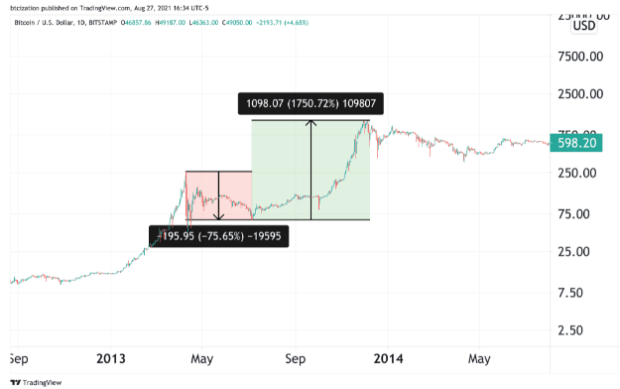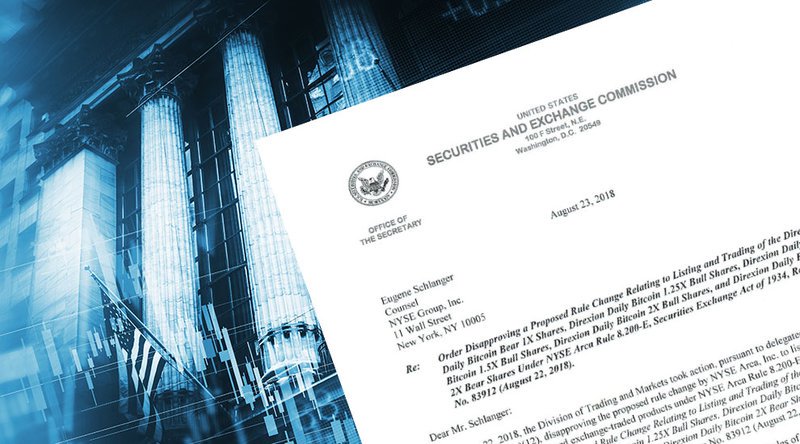Pelosi’s Challenger Agatha Bacelar on Bitcoin as an Agent for Social Change
Typically, it’s the kid who tells their parents about Bitcoin, but for U.S. Democratic Congressional candidate Agatha Bacelar, it was the other way around.
“It first started with my dad. He read the Satoshi white paper really early on, before the mainstream knew about it. At first it was just him talking about it, and at first I didn’t know whether to believe him or follow this groundbreaking technology,” she told us on the Bitcoin Magazine Podcast.
This was in 2011, when Bitcoin was still largely an obscurity. I joked with her that she’s a bit of a Bitcoin O.G. (though she noted with humor that she’s not BTC rich), which is curious given that the news of her campaign accepting cryptocurrency donations would paint her as something of a newcomer.
On the contrary, she said that she acquired her first coins during her sophomore year at Stanford University and took the proverbial dive down the Satoshi rabbit hole. But instead of viewing Bitcoin through a strictly Austrian lens for its impact on monetary economics, she saw it, perhaps somewhat uniquely, as a tool for progressive social change.
“I read the paper, saw its potential for actually starting a social justice movement. I didn’t see it as much as an economic tool,” she said during the interview.
Bitcoin and Blockchains for Social Good
Andreas Antonopoulos once said in a Bitcoin Magazine interview that Bitcoin’s “post-modern” and “mirror-like capability” means that folks “tend to reflect onto Bitcoin their preconceived politics.” This, as with the stereotypical Libertarian-anarchic cultures that originally gravitated to Bitcoin, could rightly be applied to Bacelar.
The 27-year-old is part of a rising faction of progressive young talent that is shaking the ranks of the Democratic party. For her part, she’s challenging Speaker of the House Nancy Pelosi (California’s 12th district incumbent with more than 30 years of uninterrupted tenure in the U.S. House of Representatives) for a Democratic seat in Congress.
Running as she is on a hyper-progressive platform which advocates for single-payer healthcare and the Green New Deal, her left-leaning mores have blended themselves with Bitcoin’s open-source ethos. She believes that cryptocurrency contributions could inject some much-needed transparency into the election process. This is a fitting view for a woman who has rejected taking any money from Super PACs, positioning herself against an incumbent who courts more corporate dollars than most of her peers.
“Politics is run by dark money, run by private ledgers and super PACs and shell [organizations] where you can’t trace the money and see where it comes from,” Bacelar said.
Bitcoin and Empowerment
Juxtaposed against political “dark money” system is one that uses a public ledger. With Bitcoin and its blockchain, we can trace funds and keep tabs on the source of campaign funds, while circumventing centralized contribution hubs like ACT Blue, a donations platform responsible for processing a majority of credit/debit payments for Democratic candidates in the U.S.
The Bitcoin donation option hasn’t become very popular, Bacelar thinks, because it was only made legal a few years ago, and most members of Congress are too old to be privy to it or see its benefits. After all, in some regards, a technology for self-empowerment isn’t exactly in the interests of the powers-that-be.
Bacelar expressed that, as technologies, Bitcoin and blockchain are all about empowerment so, naturally, they lend themselves to the same truth-to-power ethos that America’s other social movements emphasized.
“I view this similarly to the civil rights movement,” she said. “I think it’s hard for people to believe that we can create our own tools for liberation. If you look at the civil rights movement, it was so hard for segregationists, it was so hard for them to believe that black people create and lead their own movement and liberation.”
Democracy Earth
Bacelar sees blockchain technology’s benefit to society extending beyond Bitcoin and, per her comment about viewing it first as an agent for social movements, she has for some time.
This perspective is what led her to help out with Democracy.Earth alongside her father, Herb Stephens, and co-founders Santiago Siri, Pia Mancini and Virgile DeVille. She met Siri and Mancini while working at the Emerson Collective, an LLC for incubating tools and services for social good. They were pitching the idea, known as DemocracyOS at the time, to Y Combinator and other incubators, including the Emerson Collective.
“I think I was the only one who got what they were talking about,” she said, referring to her alignment with Siri’s and Mancini’s optimism in blockchain technology’s latent potential for social change. “If you really read the origin of where this movement started, blockchain was created for the people. To move power away from larger centralized, corrupt institutions. To give the power to people to have their own keys to their data, their money, and to be able to publically audit information. In today’s world, all corruption occurs on private ledgers — banking, the finance industry or voting.”
Voting and Blockchain Applications
Right now, voters in U.S. elections can’t verify or double check how votes are tallied and allocated, and Bacelar believes that blockchain technology holds the answer. Others question the technology’s viability for this oft-touted application, and they raise concerns over personal device security, identity verification, anonymity and sybil attacks. Bacelar acknowledges that these are indeed obstacles, but she also believes that the technology needs time to grow before we say it can’t stand on its own two feet.
“I’d say we’re early for now,” she said. “I don’t think this is going to happen this year — the technology’s pretty far out. There are concerns over onboarding, how do you verify a person, sybil attacks. All of those things need to be figured out, and I’d say that proving identity and verifying that someone is human are the biggest bottlenecks. Another thing we need to work on is: How do you onboard someone seamlessly?”
Addressing Cryptocurrency “Brain Drain” in the U.S.
No coder herself, Bacelar doesn’t have immediate answers to these problems, so she trusts that the technology will evolve to address them, as those building it iron out the kinks. If she gets elected to Congress, though, she’ll be focusing on the cryptocurrency problems she does have answers to, such as addressing the “brain drain” that the cryptocurrency tech sector is facing in the U.S. in response to murky regulations.
Citing her own experience at the Silicon Valley Blockchain society, Bacelar noted that “their official recommendation is to not start a blockchain company in the U.S. They tell you to go to Switzerland.”
She believes that solutions like Singapore’s regulatory sandbox, which allows projects to launch on a limited basis while they receive approval, could work well in the U.S. as regulators and legislators work on providing clearer guidelines for cryptocurrency startups.
“First start with an open mind and don’t cast off cryptocurrency as a technology that needs to get banned … oftentimes, this comes from a place of ignorance or fear,” she said, pointing to bills floating in Congress right now that would deal with cryptocurrency by banning it outright.
After all, Bitcoin doesn’t care if you ban it — and if Capitol Hill is not on board with the revolution, it’ll just happen without (and despite) it.
The post Pelosi’s Challenger Agatha Bacelar on Bitcoin as an Agent for Social Change appeared first on Bitcoin Magazine.









